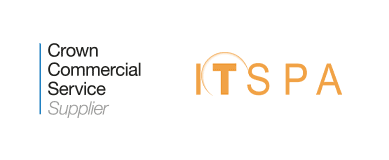With hosted automated diallers (predictive diallers) being purchased more and more often to save on up-front capital expenditure are we forgetting the other huge benefits of using a hosted dialler?
The traditional process for installing a dialler is to actually purchase it, install it in your office and ask your Telco to install some ISDN lines for you. In this article we compare premise-based auto diallers with a hosted auto dialler and we assume call costs are the same for each option.
Dialer Costs
The most obvious difference between the two options is the cost model. On-premise auto diallers are still expensive. A 20 seat blended dialler with call recording is likely to set you back upwards of £30,000. Then you need the yearly license renewals, maintenance contract and ISDN line rentals, which can cost you more than a hosted dialler just on their own. The costs can be prohibitively expensive and the return on invest slow. Eventually however, after the ROI has run its course, the dialler becomes the cheaper the option, assuming the maintenance and license costs are lower than a hosted auto dialler.
Hosted dialers are a fixed monthly cost. A 20 seat dialler is likely to cost you £350 - £1000 per month. At £350 per month you could use the dialler for 7 years before you got to £30,000. The ROI for a hosted dialler is virtually instant because the money saved in terms of increased productivity each month far outweighs the actual monthly service cost.
Resilience and availability
The three main weak points for each option are as follows:
- The outbound comms circuit.
- The server hard drives.
- The power supply.
In the case of the premises-based auto dialler, the outbound comms circuit is an internet connection or an ISDN service. If either were to fail the dialler becomes unusable for at least half a day. There would be no inbound or outbound calls. With a hosted dialler the outbound circuit is an internet connection, normally broadband. If this were to fail there are some options:
- Agents can work from home or an alternative office.
- A reduced agent group can use any available landlines or even mobile phones to continue calling.
- Inbound calls can be re-routed to a landline circuit or mobile phone.
With regard to the server, they tend to perform more reliably in a cool climate with a steady, reliable power source. This is where the hosted dialler situated in a controlled data centre also has the edge.
Servers that have solid state drives (SSDs) are diskless and hence more reliable than traditional servers. They can be very expensive to buy, however in the case of a hosted dialler the additional expense per month is almost negligible.
Power supplies in a datacentre tend to have diverse routing with automated generator backup. It is unlikely that a typical office can really match this for fault tolerance.
Performance scalability
One of the reasons that premise-based predictive diallers are expensive is due to the server hardware required. The sheer processing power required by them is immense, particularly with disk I/O and CPU resource. When a team of agents grows in size this can cause some problems in terms of the dialler loading. In the case of a premises dialler it would need to be replaced and re-installed, effectively you would be buying another dialler. With a hosted predictive dialler service, the replacement is normally a low service fee or a free of charge service.
One of the other main differences is the number of outbound lines available. In the case of a hosted auto dialer, the only limit is the bandwith available, this is sometimes 100Mbps (equal to 1000 or 3000 lines depending on compression). The cost of the lines is included in the monthly rental fee.
In on premise scenarios the outbound lines need to connect directly to the premise. This means, in the case of a 20 seat team, you would need up to 100 lines to allow for 4:1 ratio dialling and administrative calls. 100 ISDN lines is likely to cost £1200-£1500 per month. VoIP lines would cost around £400 per month
Upgrades and maintenance
As the hosted dialler is a managed service upgrades and maintenance will be included in the service and will happen on a regular basis. It is in the interests of the service provider to regularly perform maintenance on the server because they are responsible for its availability.
On premise diallers normally require a site visit and the upgrades are likely to be chargeable. Hence they tend to be less up to date.














